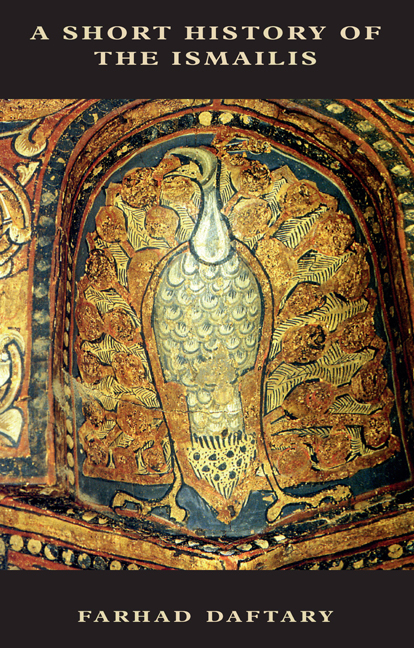Book contents
- Frontmatter
- Contents
- Preface
- Note on Transliteration, Dates and Abbreviations
- 1 Ismaili History and Historiography: Phases, Sources and Studies
- 2 Origins and Early History: Shī'īs, Ismailis and Qarmaṭīs
- 3 The Fatimid Age: Dawla and Da'wa
- 4 The Alamūt Period in Nizārī Ismaili History
- 5 Later Developments: Continuity and Modernisation
- Glossary
- Select Bibliography
- Index
- Frontmatter
- Contents
- Preface
- Note on Transliteration, Dates and Abbreviations
- 1 Ismaili History and Historiography: Phases, Sources and Studies
- 2 Origins and Early History: Shī'īs, Ismailis and Qarmaṭīs
- 3 The Fatimid Age: Dawla and Da'wa
- 4 The Alamūt Period in Nizārī Ismaili History
- 5 Later Developments: Continuity and Modernisation
- Glossary
- Select Bibliography
- Index
Summary
The Ismailis represent the second largest Shī'ī Muslim community after the Twelvers (Ithnā'asharīs), and are today scattered as religious minorities in more than twenty-five countries of Asia, Africa, Europe and North America. Despite their long history and contributions to Islamic civilisation, however, they were until recently one of the least understood Muslim communities. In fact, a multitude of medieval legends and misconceptions circulated widely about Ismaili teachings and practices, while the rich literary heritage of the Ismailis remained inaccessible to outsiders. The breakthrough in Ismaili studies had to await the recovery and study of a large number of Ismaili sources, a phenomenon that has continued unabated since the 1930s. As a result, modern scholarship in the field has already made great strides in distinguishing fact from fiction in many aspects of Ismaili history and thought.
My own interest in Ismaili studies dates back to the 1960s. Subsequently, I attempted to collect and synthesise, in as comprehensive a manner as possible at the time, the findings of modern scholarship on the complex history of the Ismailis. The results were published in The Ismāīlīs: Their History and Doctrines (Cambridge: Cambridge University Press, 1990). The present book, addressed to a wider readership, is organised quite differently, and it does not represent a condensed version of my earlier work. Here, I have adopted a topical approach within a historical framework, focusing on a selection of major themes and developments, in addition to providing historical and doctrinal overviews. In particular, the present book concentrates on the diversity of the intellectual traditions and institutions elaborated by the Ismailis, as well as their responses to the challenges and adverse circumstances which they often encountered in the course of their history.
I owe a special debt of gratitude to Neguin Yavari and Kutub Kassam who read an earlier draft of this book and made many valuable suggestions for its improvement. I would also like to thank Jan Malique who meticulously prepared the typescript for publication. Needless to add, I am solely responsible for the final product and the views expressed in it.
- Type
- Chapter
- Information
- A Short History of the IsmailisTraditions of a Muslim Community, pp. viiPublisher: Edinburgh University PressPrint publication year: 2020



